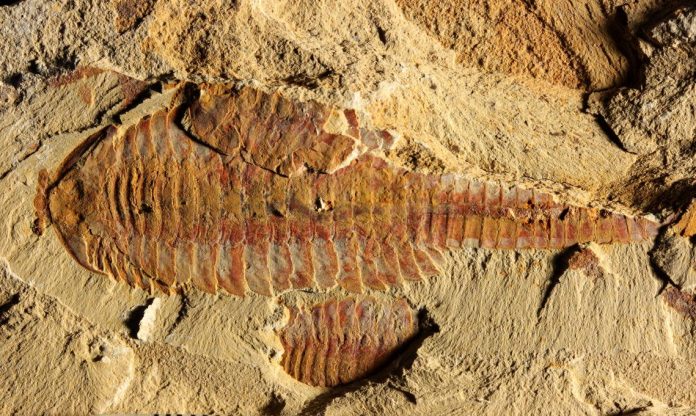One of the few fossils that have a preserved cardiovascular system was reported by Nicholas Strausfeld, a Regents’ Professor of Neuroscience at the University of Arizona’s Department of Neuroscience, Xiaoya Ma at London’s Natural History Museum, Gregory D. Edgecombe of the Department of Earth Sciences at the Natural History Museum in London, and scientists from Yunnan Key Laboratory for Palaeobiology at Yunnan University in Kunming, China in the journal Nature Communications.
The fossil of Fuxianhuia protensa, an extinct ancestor of arthropods, were discovered in Yunnan province in China. The three-inch-long fossil is 520 million years old.
Fuxianhuia protensa had a well-defined cardiovascular system with a longitudinally arranged heart that was about half the length of the animal with arteries extending from the heart to the majority of the animal’s body. The researchers also found evidence of a well-defined nervous system. The cardiovascular and nervous systems are very similar to those in modern arthropod species.
The researchers were able to define the cardiovascular system and nervous system due to the rapidity with which the fossils were covered with sediment. Some of the chemicals in the sediment and water that covered the animal in death preserved the animal’s soft tissue in a chemical form that is distinguishable from other parts of the animal due to the presence of carbon.















